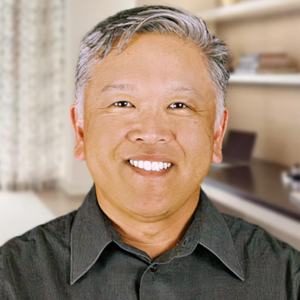Q: What is my #1 goal as a new owner of a dental practice?
A: Your #1 goal should be client retention. And the #1 way to accomplish that is through staff retention.
One of the most influential factors that lead to your success as a new owner won’t be the roadside visibility or advertising costs, but rather something, or should I say someone(s), on the inside: the existing staff members.
Retaining staff is the number one (let me say that loud and clear: NUMBER ONE) goal of a new buyer. Why? Afterall, haven’t we talked about how staff costs are usually the highest expense, especially for well tenured members? You may be thinking, “Can’t I just cut someone or hope they leave to reduce my costs?”
Sure you can. But just remember, these members have the knowledge of the inner workings of the office, relationships you don’t, and are key to retaining patients.
These members have likely been with the seller for years. They know why things are done a certain way, and maybe more importantly, why they’re not done another way. They’ve been there for the kinks to be worked out. Use that experience and wisdom to your advantage!
Also, these members have relationships that you need to thrive. They know who the specialists are in the area. Of those specialists, they know where to refer patients to for ortho, endo and perio. They know equipment reps and suppliers who will literally keep your practice running. Use those relationships to your advantage!
Most importantly, these team members know the patients. They know that Ms. Meyer needs an extra 30 minutes for every restorative appointment. They know that Mr. Jenkins has referred about a dozen patients to the office. They know the patients, but most importantly, the patients know them. Use that familiarity and trust to your advantage!
I have seen hundreds, if not thousands, of transitions by now. Time and time again, the deals that had the smoothest transfers have been those who followed some basic, yet sound, recommendations.
When you’re the outsider entering into a hopefully well-oiled, finely tuned practice, you’re the odd man out. You’re also now the boss. This might make employees anxious and/or cynical.
The best way to avoid that is to walk into that office, before the transition is even complete, and meet the staff. Ask them their names. Ask about their family, hobbies, pets, favorite foods. Find a way to connect with them and endear yourself to them. That may mean bringing in one of those large boxes of oversized cookies; after all, who can turn those down?
Secondly, communicate with them what they can expect. That includes the “big stuff” they care about most. Reassure them that you have no intentions of firing anyone. Don’t make any significant changes without a heads up. That includes who you order from, vacation policies, hours, etc.
Changes are going to happen. It’s just the nature of transitioning a business from the steady, nitrile gloved hands of one dentist to another. Be conscientious and keep the changes small, like what kind of composite you order or maybe a new website.
Approach the “big stuff” cautiously, if they need to be addressed and revised. Then, after you’ve owned the practice for six months, give or take, and you’re really seeing it function day to day, change away!
I’m sure your biggest fear, aside from the misconceived notion that you can’t afford to buy a practice as a new-ish grad, is that the staff just won’t want to stay. In all the transitions I’ve seen, the two reasons I’ve seen existing staff members quit a new boss are arrogance from the new buyer and/or dropping health insurance.
Do not make either of those mistakes.
Unfortunately, humans are not always predictable. You can do everything right and still find that one person is resistant to change. However, you can play the odds. The odds are that the majority of the team will be won over and eventually, that standalone member may see things the same.
My final recommendation is the key to ensuring these steps succeed: don’t go through the motions and treat them like they’re items on a to-do list.
Everything you do when you’re interacting with them should be sincere. The adage “actions speak louder than words” may be true, but I’d go so far to say that sincerity speaks louder than actions.
At the end of the day, your ultimate goal is to have a successful, prosperous practice. There are dozens of “mini” goals that take you one step closer, just like rungs on a ladder. Make retaining the staff one of those lower rungs you need to step on to safely climb with a stable grasp the rest of the way.






